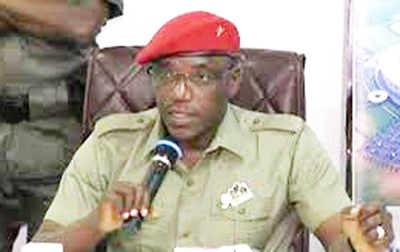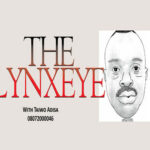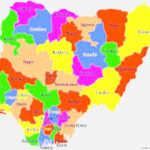Former Minister of Youths and Sport, Solomon SelcapDalung, speaks with ISAAC SHOBAYO on the serious economic situation the country is facing currently vis a vis the removal of petroleum subsidies, hike in electricity tariffs, and soaring prices of essential food items, among other issues. Excerpt:
Sir, the hardship in the country at the moment occasioned by the removal of petroleum subsidy and recent increase in electricity tariffs is biting harder and affecting the livelihood of average Nigerians. What is your assessment of the situation?
It is a period of great trial for me because I wake up every day reflecting on the situation, and the burden of leadership rests squarely not only on those in government but [everyone] at all levels. The hardship exposes the failure of the political leadership to manage the economy, provide security, and even provide social services for the citizens. This failure is hydra-headed because it permeates all sectors of social life. And if the hardship was artificial, it was caused by some policies of the government of the present administration, especially from the day President [Bola] Tinubu was inaugurated when he suddenly removed subsidies on petroleum without clear knowledge of the terrible situation he inherited and without any economic team to evaluate and assess it. Since then, the president and his team have been trying to navigate out of the problems. But his approach to trying to ameliorate the challenges of the withdrawal of subsidies nearly compounded almost everything because of the mismanagement of the palliative regime, where billions of dollars from the public treasury are either given to the state governments, the federal legislature, or party loyalists to distribute. This has introduced another form of corruption to compound the hardship in the country. In the process of distributing the palliatives, many have lost their lives. This simply means that in solving a problem, another bigger problem has been created. The endemic corruption inherited by this government has also instigated hopelessness and youth restiveness to some extent. The Niger Delta is boiling; the North is on fire, and the relationship between the North and South economies has been affected. At the moment, there is no easy and free movement of goods from the North to the South of this country. Quite a lot of trailers conveying goods are being attacked by the youths, and the goods are looted. There is no more social security. The only way out of the present predicament in the country is for the president to go back to the drawing board and swallow his pride by crashing the pump price and working out new modalities to permanently remove the subsidy. Now we were thinking that the president would change strategy and consult widely on the petroleum subsidy, but the government has again unleashed another hardship on the country by increasing electricity tariff, which the Minister of Power, in an attempt to explain, embarrassed the government by qualifying the increase in terms of band. With this, I can’t say what we are getting for average Nigerians. The cost of gas, petroleum, and electricity has all gone up without any increase in salary. How did the government want us to survive? Nobody should decide anyone’s fate. Things are getting worse, and the poor are getting traumatized on a daily basis. Those in leadership have not sat down to properly address the problems on the ground; Nigerians are gasping for breath.
In an attempt to mitigate the present problems, the federal and state governments have been spending a huge amount of money on palliatives, especially on food-related items, to counteract the effects. Do you think this is the way to go and what do you think the government should do to tackle the food crisis in the country?
When a system is referred to as a government, what it means is that it has the capacity and the instrument of coercion to enforce its will over a territory. The only way the government can get out of this food crisis is not through a hypocritical approach by sharing money in the form of palliatives with the National Assembly members, states, or committees. No, the government should deliberately crash the prices of food items. I have been saying this: the government should release resources to mop up grains. If need be, the government can import, and if the government has no money, this is the time for genuine borrowing and importing to crash the price of foods to the barest minimum. Once this is done, local production will step in to stabilize the food crisis. Once this is done concurrently, there will be stability, food will be available for people to eat, and people will be able to move from one place to another while doing their legitimate businesses. That will stabilize the economy, and it will give the president time to assemble his economic team and develop a proper blueprint to deal with the situation accordingly. He needs a new blueprint to deal with contemporary realities; this is quite different from the committees he is appointing. We need a practical, domestic, homegrown approach to our problems.
Recently, Mr. President signed the Student Loan Scheme into law, and this has been attracting a barrage of criticisms from different strata of society. What is your take on this?
The student loan legislation is the expression of the rich in this country, or rather a warning from the rich. From the rich to the poor, education is our exclusive monopoly for ourselves and our children. The government has no genuine reason to set up a student loan scheme. Those who went to the university in the 70s and 80s did not go to school through student loans; they went through a well-subsidized educational system, and the same set of people who benefited from that subsidized system are the ones today introducing loans with dangerous caveats for the children of the common man and further worsening their plight. This loan will further widen the gap between the poor and the rich. It is unfortunate that instead of subsidizing tertiary education, the government is introducing loans with stringent conditions that children of the poor cannot meet. The structure of that loan scheme tactically isolated children from the poor. To me, it is another institution created just like the Ministry of Humanitarian Affairs, which later became a ministry where those saddled with its running turned it to avenue for looting. This is also another avenue for the looting of the national treasury in the name of student loan. We are waiting to see who the beneficiaries will be.
There is always friction between the incumbent and successor, especially at the state level, where the latter usually accuse the former of financial misdemeanor. What do you think is responsible for this?
It is a constitutional problem and a collapse of our democracy because there is no internal democracy. And without internal democracy, democracy itself becomes a charade. The crisis between leaders and their successors is simply what you can refer to in the Nigerian lexicon as dog eat dog. These governors smuggled their way through by buying the tickets for the contest, or they were sponsored by godfathers who spent billions to get them there. The governors, whenever they leave after their right tenure, want to impose somebody who will cover up their trash bags while in office. While the actors are potential hypocrites and it is all a chameleon tradition: those who want to take over from them can do anything to please the incumbent to support their aspirations. And the moment the loyal boy takes over power, he will be intoxicated and will not spare his master, who is instrumental in his becoming governor. Don’t forget, politics in Nigeria is a game of intrigue. So that has been the cause of the cat and rat relationship; that has been the relationship between the incumbent and successor in office. The only way to deal with this is for the political parties to be well organized on the principles of justice and fair play. Also, ensure that the infringements on internal democracy are minimal, and those who fly the flag of a political party are byproducts of a democratic process. But if we continue with the democracy of grab and run away with it, then it is more or less tyranny in disguise, and it will whittle down the quality of leadership. And very soon, if care is not taken, bandits, kidnappers, and cultists will use their illicit organizations to wangle their ways and buy tickets and since it is a grab and run away with it system we are running, they will have the capacity to grab it. But this time round, instead of running away with it to the Government House, they will run with it to the forest. So it is a dangerous phenomenon for our democracy. I think our political parties need to understand their roles in democracy. All the crises rocking political parties are associated with their inability to embrace internal democracy. Everyone wants to put a “Veranda Boy” as chairman of a party who will be answerable to him and then appoint boys who will be answerable to him. So, what we are practising now is territorial democracy.






